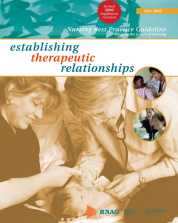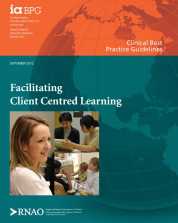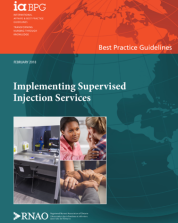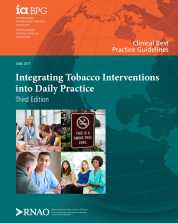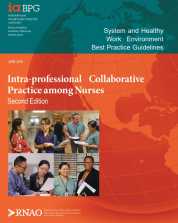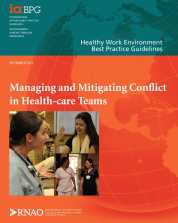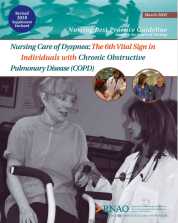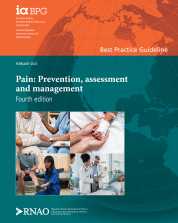The purpose of this best practice guideline (BPG) is to address the therapeutic relationship and its central importance to nursing practice. Effective nursing practice is dependent on an effective therapeutic relationship between the nurse and the client. The guideline addresses the qualities and capacities of an effective therapeutic relationship, the state of knowledge, and the knowledge needed to be effective in a therapeutic relationship.
The aim of this best practice guideline (BPG) is to provide evidence-based recommendations for Registered Nurses, Registered Practical Nurses and other health-care providers to facilitate client-centred learning that promotes and enables clients to take action for their health.
The purpose of this best practice guideline (BPG) is to provide an overview of principles, resources, and structures for delivering evidence-based supervised injection services (SIS).
The purpose of this best practice guideline (BPG) is to provide best practices for tobacco interventions for nurses and other health-care providers across all care settings, with evidence-based recommendations related to assessment and interventions for adults who use tobacco.
The purpose of this best practice guideline (BPG) is to strengthen collaborative practice among nurses, because effective collaborative practice is essential for working in health-care organizations.
The purpose of this best practice guideline (BPG) is to manage and mitigate interpersonal conflict among healthcare teams with the view that while some conflict is preventable, healthy conflict can also be beneficial.
The purpose of this best practice guideline (BPG) is to address the nursing assessment and management of stable, unstable and acute dyspnea associated with COPD.
The purpose of this best practice guideline (BPG) is to provide nurses, the interprofessional team and caregivers with evidence-based recommendations for the provision of oral care for adults (18 years of age and older) that will:
• promote an interprofessional approach to providing oral care,
• enhance the delivery of oral care interventions, and
• ultimately lead to positive oral health outcomes for persons.
The purpose of this fourth edition guideline is to provide nurses and the interprofessional team with evidence-based guidance for the prevention, assessment, and management of all types of pain across the lifespan.
